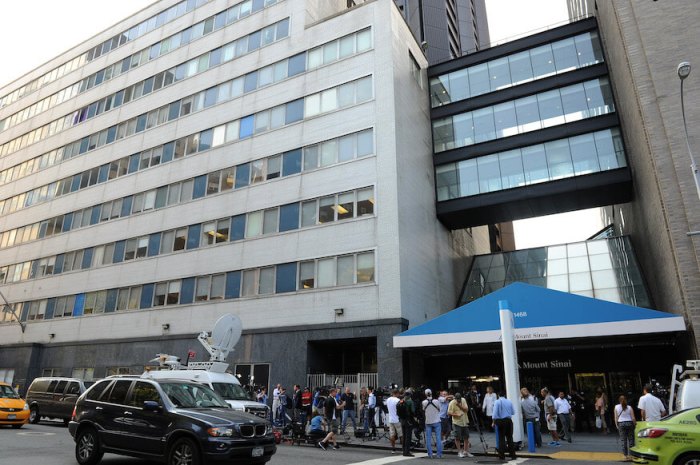The last few weeks of the year are filled with celebrations — Thanksgiving, Hanukkah, Christmas, to name just a few. And those celebrations are filled with food. Though managing weight is a year-round business, holidays celebrated with rich food — followed by the evergreen New Year’s resolution to lose weight — throws the topic into sharp relief. The passing of another year also reminds us we’re not getting any younger — and weight management is crucial as we age. We talked to Dr. Reshmi Srinath, assistant professor, medicine, endocrinology, diabetes and bone disease, director, weight, and metabolism management program, Icahn School of Medicine at Mount Sinai Health System, about its importance.
Ask Mount Sinai: Managing weight as you age

Photo: iStock.
If you are at what’s considered a healthy weight at age 30, is it realistic/expected/ideal to maintain that weight as you age? Is some gain or loss expected, and why?
As we get older, past our 20s, our metabolism does slow down. So while it’s ideal to maintain your weight, it’s possible you may also gain a few pounds without changing your diet or activity level due to this decline in metabolism.
How will maintaining a healthy weight help you as you age? And how will NOT maintaining it (losing or gaining too much) hinder you as you age?
Weight gain is directly linked to increased risk of diabetes, high blood pressure, high cholesterol as well as heart disease. There is also more and more data that suggest weight gain can be a risk factor for certain cancers. Maintaining a healthy weight will reduce the risk of these metabolic complications and may protect you from certain cancers. Age-related aches and pains, genetics, use of certain chronic medications associated with weight gain and 24-hours-a-day food delivery services make it harder for those struggling to take off the pounds. But it can be done by incorporating some simple strategies. I’ve helped my older patients lose weight and keep it off by prioritizing a healthy diet and lifestyle.
When does your metabolism begin to slow down, and how big a role does that play in gaining weight as we age?
Your metabolism can start to slow down after your 20s. It’s hard to pinpoint because our diet and activity level may be changing. Other factors can play a role in weight gain including use of medications such as steroids and certain psychiatric medications, untreated anxiety and depression and hormonal disorders such as untreated hypothyroidism.
Is there anything you can do to keep it from slowing down, or is it simply part of the aging process?
Exercise is the one thing that will increase metabolism, burn calories and increase endorphins. I recommend at least 30 min daily of something even if it’s just walking. Weight-bearing exercise promotes bone strength and can reduce the risk of fractures.
Do we need fewer calories the older we get?
A person’s metabolism is very fine-tuned and dependent on their height and weight and activity level. Generally, most women need around 1,500 calories daily to maintain their weight and men need 2,000 calories daily but this is individual-dependent.
What lifestyle adjustments can help us age well in regard to managing weight?
I stress exercise to all my patients, as this can increase your metabolism and ability to burn calories. A combination of cardio with light weights or resistance training is important for women especially because it helps build muscle tone which particularly can drop post menopause. Swimming is a great exercise for seniors and can help with muscle tone and mobility, so see if you can find a local Y that has swim classes. If you feel like even with diet and lifestyle changes that you are still struggling to lose weight, consider seeing a specialist for weight loss.



















